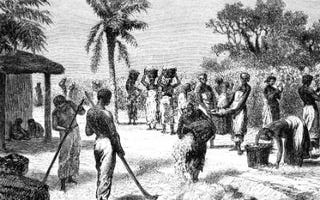Sundance508
Gold Member
- May 24, 2016
- 3,109
- 609
- 255
- Thread starter
- #121
Slavery is alive and well and arises when economics demands it....we are well on our way to that point....if the elitist establishment forces prevail we will see a new form of slavery arise in America. And of course..........as has been shown it exists even in the old form in many areas of the world as we speak...so the civil war solved nothing....the issues that were the basis for that struggle are still with us.
Economics of Slavery
15 Countries Where Slavery Is Still Legal but it also exists in many other countries illegally.
Economics of Slavery
15 Countries Where Slavery Is Still Legal but it also exists in many other countries illegally.
